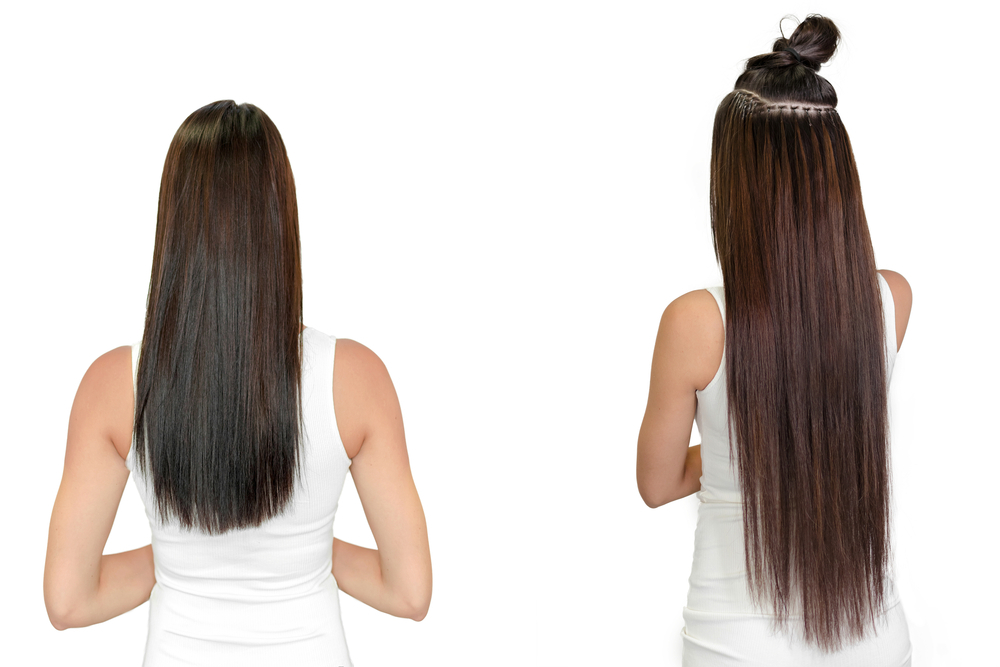Can Hair Extensions Cause Allergic Reactions?
Hair extensions have become a popular way to add length, volume, and versatility to one’s hairstyle. However, despite their many benefits, there is a possibility that hair extensions can cause allergic reactions in some individuals. This blog will explore the potential causes of allergic reactions to hair extensions, the symptoms, preventive measures, and how to manage any adverse effects.
Understanding Hair Extensions
Hair extensions come in various types, including clip-in, tape-in, sew-in, and fusion, and can be made from synthetic or human hair. They are attached to natural hair to enhance appearance and provide more styling options.
Common Materials and Methods
- Synthetic Fibers: Often made from plastic, they can mimic the look of natural hair but may cause irritation.
- Human Hair: Usually more expensive and less likely to cause allergies, but can still cause reactions in some cases.
- Adhesives and Bonds: Used in tape-in, fusion, and other methods, these can contain chemicals that may trigger allergies.
- Metal Clips: Used in clip-in extensions, these can cause allergic reactions, particularly if you have a metal allergy.

Can Hair Extensions Cause Allergic Reactions?
Potential Allergens
Several components of hair extensions can cause allergic reactions:
- Adhesives: Glues and tapes used to attach extensions may contain chemicals that can irritate the scalp.
- Synthetic Fibers: These can cause irritation or allergic reactions, especially in those with sensitive skin.
- Metals: Clips made of nickel or other metals can cause contact dermatitis in individuals with metal allergies.
- Hair Treatments: Extensions, especially human hair, are often treated with chemicals to maintain their look, which can cause reactions.
Symptoms of Allergic Reactions
Allergic reactions to hair extensions can manifest in various ways:
- Itching: Persistent itching on the scalp, neck, or face.
- Redness and Inflammation: Red, inflamed patches on the scalp or where the extensions contact the skin.
- Swelling: Swelling around the scalp, face, or neck.
- Rash or Hives: Development of a rash or hives on the scalp or surrounding areas.
- Burning Sensation: A burning or tingling feeling on the scalp.
Preventing Allergic Reactions
Perform a Patch Test
Before getting hair extensions, perform a patch test with the adhesive or material to check for any adverse reactions.
Choose Hypoallergenic Products
Opt for hypoallergenic adhesives and materials to minimize the risk of allergic reactions. Look for extensions labeled as hypoallergenic or suitable for sensitive skin.
Consult with a Professional
Speak with a hairstylist who has experience with extensions and can recommend products and methods less likely to cause reactions.
Maintain Proper Hygiene
Regularly clean your extensions and scalp to reduce the buildup of products and potential allergens.
Managing Allergic Reactions
Remove the Extensions
If you experience a severe reaction, remove the extensions immediately to prevent further irritation.
Cleanse the Scalp
Gently wash your scalp with a mild, fragrance-free shampoo to remove any adhesive residue or irritants.
Apply Soothing Treatments
Use soothing treatments such as aloe vera gel or hydrocortisone cream to alleviate itching and inflammation.
Seek Medical Advice
For persistent or severe reactions, consult a dermatologist or healthcare provider for appropriate treatment.
Conclusion
While hair extensions can significantly enhance your look, they can also cause allergic reactions in some individuals. By understanding the potential allergens, performing patch tests, and choosing hypoallergenic products, you can reduce the risk of adverse reactions. Always consult with a professional hairstylist to ensure the best results and minimize any potential risks.
For more information or to book a hair extension appointment, visit our official booking page.
External Links
- Healthline: Allergic Reactions to Hair Products: Learn more about allergic reactions to hair products and how to manage them.
- American Academy of Dermatology: Contact Dermatitis: Overview of contact dermatitis, its causes, and treatments.
Read more related articles to enhance your knowledge and make informed decisions about cosmetic procedures.
Hair Extensions: The Power of Length and Volume in West Delhi
Perfect Hair Extensions for Thin Hair: A Comprehensive Guide


